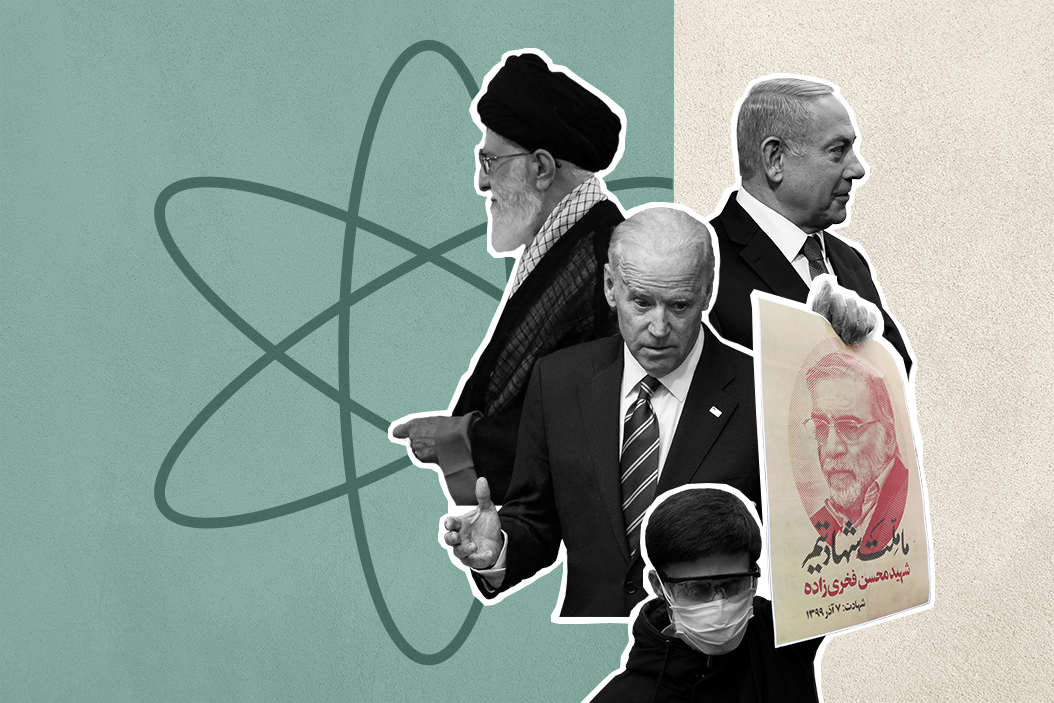It's been four days since Iran's top nuclear scientist, Mohsen Fakhrizadeh, died in a hail of bullets on a highway near Tehran. Iran has plausibly blamed Israel for the killing, but more than that, not much is known credibly or in detail.
This is hardly the first time that an Iranian nuclear scientist has been assassinated in an operation that has a whiff of Mossad about it. But Fakhrizadeh's prominence — he is widely regarded as the father of the Iranian nuclear program — as well as the timing of the killing, just six weeks from the inauguration of a new American president, make it a particularly big deal. Not least because an operation this sensitive would almost certainly have required a US sign-off.
So what's the aftermath?
Killing Fakhrizadeh does two things immediately. In the most immediate term, it may — along with the recent bombing (also likely by Israel) of a key nuclear site — deal a temporary blow to Iran's nuclear ambitions. But it will hardly derail a program as extensive and sophisticated as what the Iranians have built over the past two decades.
But more broadly, the killing could complicate the prospects of reviving the 2015 Iran nuclear deal, something that US president-elect Joe Biden has said he wants to do when he takes office in January.
As a refresher: Under that pact, Iran froze its nuclear weapons programs in exchange for the removal of some US and international sanctions. But Israel and many Iran hawks in Washington said the pact didn't do enough to permanently stop Iran's path to a bomb, and that it failed to curb Iran's other weapons programs and regional proxy wars. In 2018, Trump left the deal and reimposed sanctions. Since then Iran has ramped up its nuclear program, while the Trump administration has applied tighter sanctions still.
Now, with tensions rising and the Iranians progressing towards a bomb again, Biden says he's willing to consider stepping back into the agreement, lifting sanctions again if Iran goes back to the uranium limits agreed in the 2015 deal.
Doing that would require Biden to lead extremely deft negotiations not only with Tehran but also on Capitol Hill, where many American lawmakers are skeptical of any overtures towards Iran at all.
And that's where the Fakhrizadeh killing could make things even harder: if the Iranians respond forcefully to the assassination — say by striking at a target within Israel, or by attacking US forces as they did in retaliation for the US killing of Qassim Suleimani in January — Biden could take office in January amid a cycle of escalation that makes it very hard to sit down and talk calmly with Tehran at all.
That puts the ball in Iran's court right now — and it's a court divided. Strong supporters of the Iran deal, like president Hassan Rouhani, will doubtless want to keep things cool until January and see what Biden brings to the table. But harder line figures who were always skeptical of the Iran deal will be itching to respond to the killing, but they also wish to see some of the more crippling oil and banking sanctions removed.
How, then, to balance the revolutionary impulse to save face with the pragmatic need to get economic relief? In part it depends on how realistic Tehran thinks a return to the Iran deal is.
Either way, we would love to be inside the Iranian Leadership's "Assassination Response" WhatsApp group right now. Supreme Leader Khamenei is typing...
